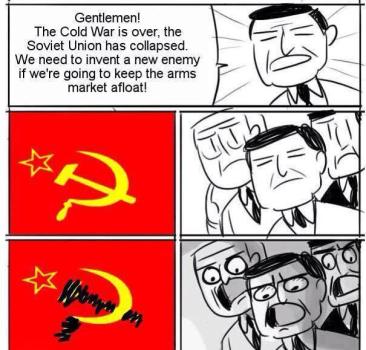 Scapegoating is as old a tactic as political power itself, and a vital tool in the perpetuation of political, economic and social privilege. James Madison, the Father of the US Constitution, expressed a great truism about state power when he described its fundamental role as being to defend ‘the minority of the opulent from the majority.’ What Madison neglected to mention was that the defense of the minority of the opulent against the majority tended to entrench and exacerbate social and economic inequality. This in turn precipitated social chaos as inequality and disorder exacerbated social and class conflict, threatening the stability of the system as a whole.
Scapegoating is as old a tactic as political power itself, and a vital tool in the perpetuation of political, economic and social privilege. James Madison, the Father of the US Constitution, expressed a great truism about state power when he described its fundamental role as being to defend ‘the minority of the opulent from the majority.’ What Madison neglected to mention was that the defense of the minority of the opulent against the majority tended to entrench and exacerbate social and economic inequality. This in turn precipitated social chaos as inequality and disorder exacerbated social and class conflict, threatening the stability of the system as a whole.
Faced with this situation, the minority of the opulent required some mechanism or other to neutralize social conflict and ensure stability without having to address its root causes in the defense of their economic and social privileges from economic democracy and social justice. They needed to be able to establish and maintain a state of peace without justice, a state long understood to be synonymous with tyranny. Whether the tyranny concerned was that of an individual autocrat, or a class of them, the same problem remained; what the minority of the opulent needed in effect was an ideological safety valve to take the pressure away of actually existing social conflicts and tensions and divert them onto a scapegoat, onto one or another ideological punching bag for the shortcomings of a society devoted to maintaining the minority of the opulent in the lifestyle to which they had become accustomed. Continue reading







